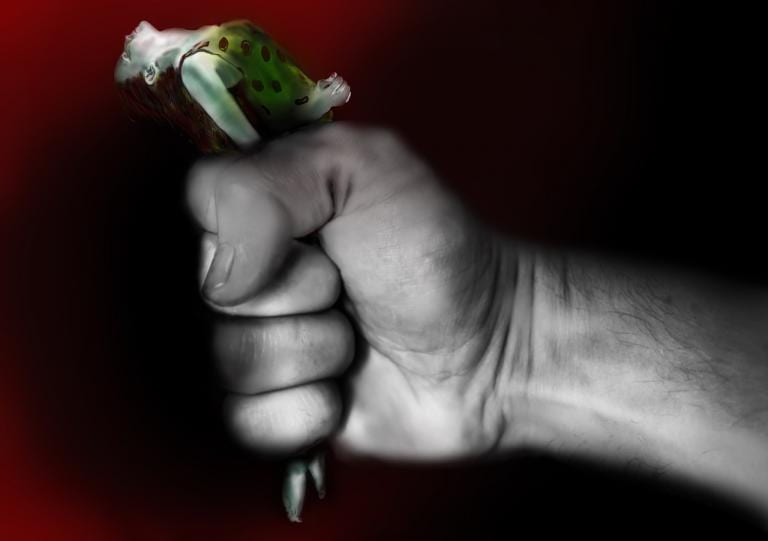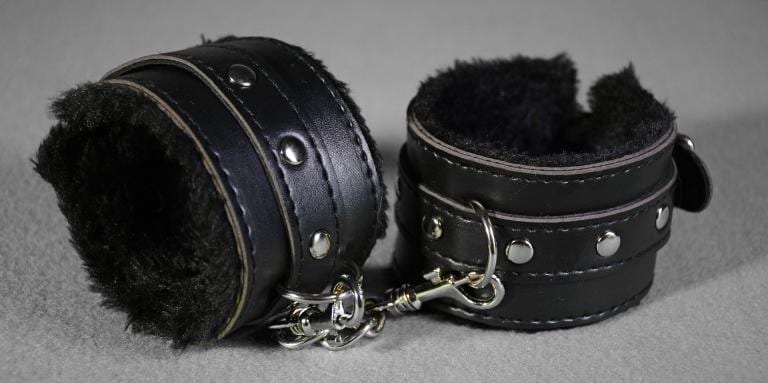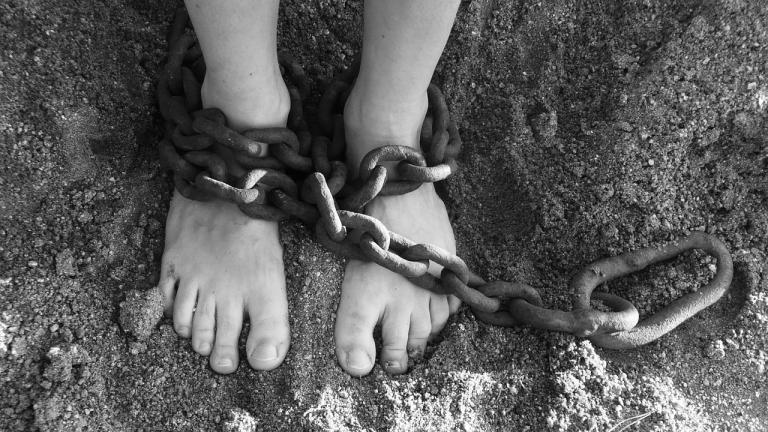In the few weeks since I started to blog about my experiences in an abusive relationship, I’ve had an opportunity to see first hand how Catholics respond to women who claim to be abused.
Up front, I want to acknowledge the good: I’ve had a lot of people express support, offer prayers, share their own experiences, and thank me for bringing this issue to the fore. One friend even mailed me cookies.
Another reader sent a copy of an excellent book that I’ve been blasting through, “Why Does He Do That: Inside the Minds of Angry and Controlling Men,” by Lundy Bancroft, a counsellor who runs treatment programs for abusive men. His book has been tremendously helpful to me in understanding what I experienced over the past two decades of my life – and it also addresses a lot of the myths and misunderstandings about domestic abuse.
One of the things that Bancroft points out is that abusers are often accidentally enabled by well-meaning people who repeat or reinforce tropes that are used by abusers themselves to keep their partners confused and trapped. A lot of these are tropes that I’ve seen this week in my combox here or in comments on my blog posts on social media.
Because my audience is Catholic, usually these myths get dressed up with a theological garnish – but they are essentially the same myths that promote the abuse of women in secular contexts and in abusive relationships themselves.
Poor Unfortunate Soul
Abusers routinely paint themselves as victims – victims of their partners, of their parents, of their circumstances, even of their own children. When he wasn’t calling me an angel, my ex insisted that I was really the abusive one. Anytime that the kids stood up to him, he was incensed that I was “letting them treat (him) like that.” The fact that everyone else (our kids, my parents, his aunt, my siblings, our mutual friends, social workers, police, etc.) was trying to wake me up to the extent and seriousness of his abuse didn’t make a dent in his conviction that he was really the injured party.
Bancroft explains the reason for this: entitlement. The abuser feels entitled to have his partner and his children cater to his needs. He confuses basic respect for a person’s inherent dignity with the kind of deferential respect that is reserved for those who have earned it. When his wife and children refuse to give him special privileges, he feels that they have trampled on his basic rights.
Unfortunately, many compassionate and kind-hearted people get sucked in by this, believing that the abuser’s behaviour is “caused” by his unfortunate life circumstances, or even by the behaviour of his spouse. Abused women themselves are routinely manipulated by the “poor me” routine – we spend hours, days, years attending our abuser’s pity party and feeling sorry for the pain that it causes him when he makes selfish choices and abuses us.
Bancroft demonstrates that abusive behaviour is not caused by unfortunate circumstances, a particularly hard lot in life, or even mental illness or alcoholism (alcohol and pot will not make a person abusive, though they may make an abusive person more dangerous.) The attempt to paint himself as a victim is a ploy that abusers use to manipulate others into enabling them.
Wash, Rinse, Repeat
The most common destructive advice given to abused women is “forgive.” “We are all sinners. We all make mistakes. You need to work on your anger issues and give him another chance.”
This approach confuses forgiveness with enabling and suggests that mercy demands we forgo accountability.
In many cases, apologies are part of the cycle of abuse: after an abuser explodes, he may realize that he has jeopardized his relationship and he will apologize, often offering excuses or minimizing his abusive behaviour in the process. Then there is a period where he seems to be trying to do better before the abuse escalates again.
These apologies are not, however, accompanied by any real commitment to change. If you use the apology as a jumping off point to suggest courses of action that might lead to real repentance this often triggers more abusive behaviour, excuses, or promises which are quickly dropped the moment the abuser no longer feels that there is any threat of consequences.
According to the USCCB, “Forgiveness… does not mean forgetting the abuse or pretending that it did not happen. Neither is possible. Forgiveness is not permission to repeat the abuse. Rather, forgiveness means that the victim decides to let go of the experience and move on with greater insight and conviction not to tolerate abuse of any kind again.” (When I Call for Help: A Pastoral Response to Domestic Violence Against Women)
Mea Culpa
Abused women are often told to consider their own role in causing marital conflict or in provoking their partners to abuse. “Focus on your own sins,” or “Remove the plank from your own eye,” are frequently responses to women who find their spouse’s abuse intolerable.
The problem is that abusers thrive on misdirection – and one of their favourite tactics is to redirect attention onto the faults of their spouse. Victims of abuse hear and think about their own faults and imperfections all the time, and are often guilt-ridden over “sins” that only exist in the minds of their abusers.
Abusers then use these alleged faults in order to control their partners. “I’ll agree to stop yelling at the kids so much if you agree to stop refusing me sex.” This sounds like a bargain, but actually it’s a threat: if you refuse sex, I’m going to take it out on the kids. They agree to stop being abusive if you agree to give up your rights – and if you don’t give up your rights, you (or your children) are asking for it.
Bancroft says, “when an abused woman refuses to “look at her part” in the abuse, she has actually taken a powerful step out of self-blame and toward emotional recovery. She doesn’t have any responsibility for his actions. Anyone who tries to get her to share responsibility is adopting the abuser’s perspective.”
Redemptive Suffering
One of the most powerful concepts in Christianity is the idea that suffering brings about a greater good. In the case of abuse, however, this often gets perverted into a mandate to stay and suffer in order to “save your spouse’s soul.”
Bancroft is very clear in stating that not once in his work with thousands of abusive men has he seen one who turned his life around because of the patient long-suffering of his partner. The abuser’s central problem is that they feel entitled to have their partners make sacrifices for them without complaint. When I told my ex that I was leaving him, one of his arguments for why I should stay was “We suffer better together.” What he meant was, “I find my suffering easier when I can offload it onto you.”
So far, I have never seen a Catholic source turn this around and recognize that when redemptive suffering leads an abuser to repent, it is not the suffering of their victim but their own suffering that causes them to seek to change. Just as alcoholics will generally not stop drinking until they hit bottom, abusers will not stop abusing unless they realize that their behaviour has serious consequences for them.
Hold Your Tongue
When victims of abuser try to speak out, we often find ourselves in an impossible double bind. A woman who comes forward anonymously is “not credible” because there is no way of verifying her story. She hasn’t had the “courage” to use her real name, so we have no way of finding out if she’s even telling the truth.
On the other hand, if you do use your real name then you are guilty of “detraction,” depriving your spouse of their good name and reputation. I’ve seen some commenters suggest that if a woman accuses a man of abuse without “proof” she is committing calumny. The underlying assumption, of course, is that somehow she doesn’t have accurate knowledge of what she suffered and isn’t qualified to tell the story.
Others may think that there are “two sides.” In one comment thread about a previous post, people were actually musing about how they could get in touch with my ex so that they could hear “his side” of the story.
All of this makes it impossibly difficult for abused women to tell about their experiences and be believed, and it contributes to the illusion that abuse is rare, or that many women who claim to be abused are “making it up” as an excuse to “abandon” their marriages.
Abuse thrives on secrecy. The reality is that most victims keep quiet for years, decades, or even for their entire lives because they are afraid of reprisals, because they love their abuser, because they are afraid their children will be badly effected if they tell the truth, or because they think they will not be believed.
Whenever a woman comes forward, there are lots of other women looking on from the sidelines, watching to see what kind of treatment they can expect if they break the cycle of silence and try to get help and support. Bancroft repeatedly belabours the point that women who claim to be victims are almost invariably telling the truth, yet I have yet to see a Catholic woman come forward without having other Catholics promptly seek to discredit or dismiss her.
Whether a woman feels that she will be believed and supported, or that she will be shamed and discredited, plays a huge role in whether her religious community will be a part of her healing – or just another abuser that she needs to escape.
Perfect Victim
Probably the funniest response that I’ve seen to my story were the folks who decided that my claims of abuse were really fueled by my “homosexual narcissism.” (I have a dark sense of humour and this is funny to me primarily because it is so manifestly ridiculous.)
What’s less funny is that this is a particularly bizarre manifestation of a much more insidious problem: the perception that any moral or personal failings (or perceived failings) in a woman deprives her of the right to receive protection from abuse.
Abusers go further. They blame their abusive behaviour on the imperfections of their partner, suggesting that if only a woman is sufficiently perfect, self-abasing, adoring and/or beautiful then she will be able to win the right to live free of abuse.
In Catholic culture, this ugly attitude is sometimes promulgated as a recipe for holiness. I recall a story circulated when I was a young Catholic convert: the women in St. Monica’s neighbourhood often had bruises from their abusive husbands, and they asked her how she avoided beatings. She told them that her humility and meekness prevented them from being necessary.
I have no idea whether this story is true or whether it’s entirely apocryphal. It doesn’t really matter: either way, it was being circulated primarily by young Catholic men and it definitely made an impression on me. The underlying message was simple: imperfect women deserve to be abused. And a “perfect woman” is one who silently submits to her husband’s authority.
Children of Divorce
One commenter informed me that by leaving my abusive husband I had selfishly turned my kids into “children of divorce.” This echoes a theme that is common in conservative Christian circles: children need a mother and a father in an intact home to be happy and successful, and that therefore women should stay in bad marriages and put a good face on it “for the sake of the kids.”
Certainly research supports the idea that intact families and two-parent households tend to lead to better outcomes for children. However, simply stating this fact ignores the reality of abuse. An abused women is not making a choice between a functional, two-parent family life and a dysfunctional life where children are passed back and forth from one parent to the other without stability. She’s not choosing between modelling love and commitment vs. demonstrating that people are disposable.
She’s choosing between subjecting her children to the effects of abuse in the home, and removing her children from an abusive situation.
The research into the effects of witnessing abuse on children paints a much bleaker picture than the research into the effects of divorce. Indeed, it’s highly probable that some of the negative effects imputed to divorce are actually due to the fact that children of divorced couples are more likely to have witnessed and experienced abuse in the home prior to their parents’ separation.
Having an abusive father disrupts the equilibrium of the entire family. Many (though certainly not all) men who go on to be abusive learned this behaviour by watching their fathers. Girls who see their mother suffer abuse are more likely to seek out abusive partners themselves. And witnessing abuse leads to a host of mental health issues in children that can continue throughout life.
This is assuming that the abuse does not extend to the children, which it often does.
Getting the kids out of an abusive home is generally much more in their best interests than keeping the marriage together.
Save the Marriage
One commenter asked me how I was going to feel about moving on with my life if several years down the road my ex got his act together and wanted to come home. Wouldn’t it be a blow to my children to lose the relationships they’ve forged with my new partner? Wouldn’t it be unfair to him when I had to put him aside in order to go back to my now-repentant ex?
This is a rather extreme interpolation from a basic premise in many Catholic discussions of marital abuse: the assumption that the marriage should be presumed valid and that a woman’s job is to model the infinite patience of God towards the sinner in her dealings with her abusive spouse.
In a sense, the commenter was absolutely right: it would be devastating to a lot of people if I threw over my current relationship in order to “fix my marriage.” Which is why I have no intention of doing any such thing.
What his comment assumes is that my ex has the right to be the moral centre of any decisions that I make in my life. That I am obligated to literally put my life, and the lives of my children, on hold indefinitely because one day he might repent.
Bancroft points out that the primary thing that an abused woman needs to do in order to heal is to learn how to see her own needs as important, and to see her own life as her own. The abuser trains her to think that her needs are subordinate to his, and that her life must always be ordered around him. When religious people assume that she should wait patiently for our abusive spouses to get better, they are basically reproducing his thinking – telling the woman that even if she leaves him, he must still be the centre of her life.*
* Bancroft demonstrates that even when an abusive relationship seems wonderful at first, the abuser is using this period to lay the groundwork that will allow him to manipulate his spouse later – which is why abusive behaviours often don’t emerge until after the woman is “hooked in” to marriage. Given that he is speaking from a wide experience of abusive men and their relationships, this would seem to indicate that in cases where a marriage “becomes” abusive, it has actually always been abusive. Which means that it is prudent, in such cases, to presume against the validity of the marriage. Most marriage tribunals seem to recognize this and grant annulments accordingly. The problem is not so much the teaching itself, but the way that teaching is often promulgated and understood within Catholic culture.
Image by akiragiulia from Pixabay
Stay in touch! Like Catholic Authenticity on Facebook:












